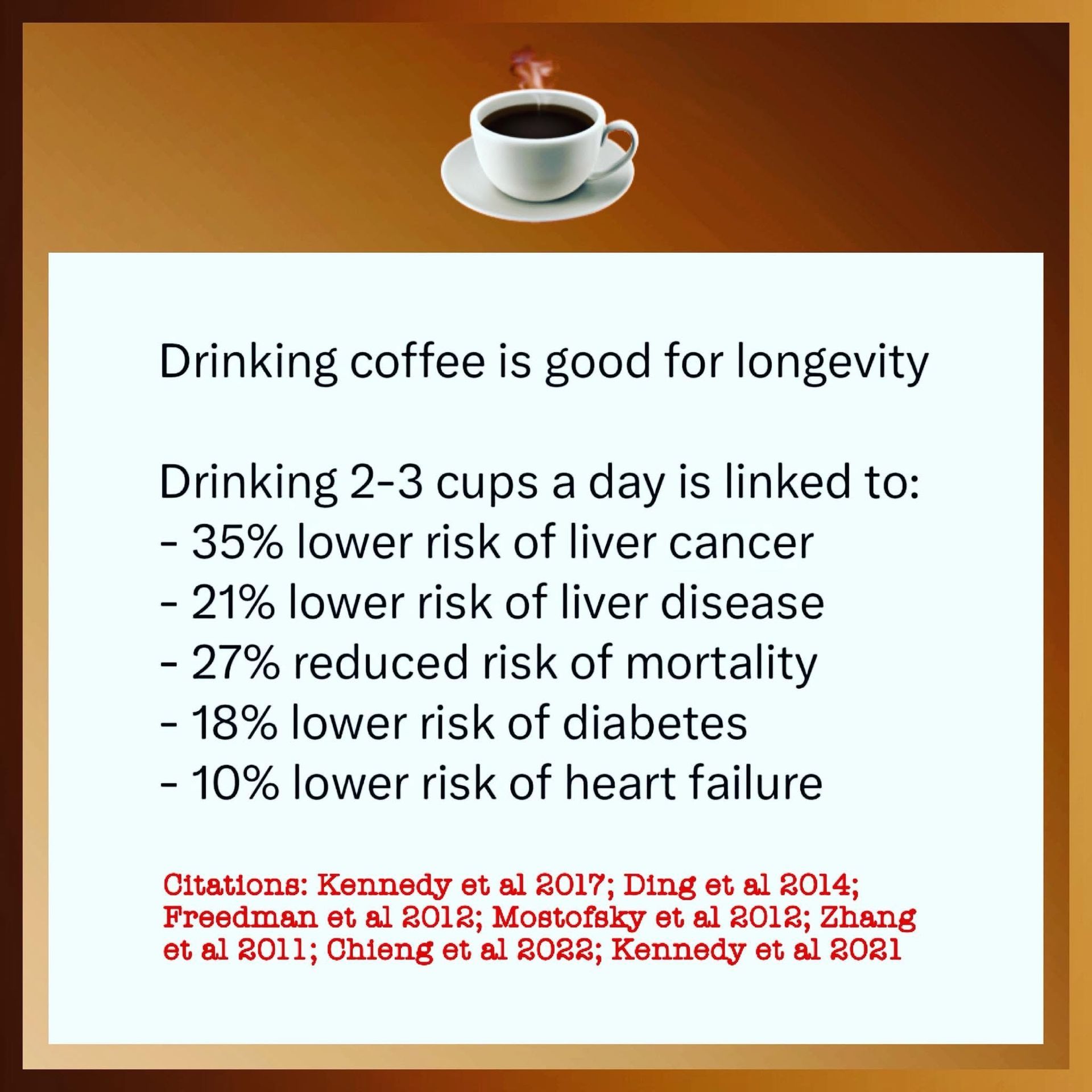Is Your Coffee Helping or Hurting You? The Hidden Dangers of Conventional Beans
Discover why switching to organic, mold-free coffee could protect your liver, reduce inflammation, and support longevity.
Is Your Coffee Helping or Hurting You? The Hidden Dangers of Conventional Beans
Discover why switching to organic, mold-free coffee could protect your liver, reduce inflammation, and support longevity.
Coffee is more than just a morning ritual. Research shows drinking 2–3 cups a day is linked to:
- 35% lower risk of liver cancer
- 21% lower risk of liver disease
- 27% reduced risk of all-cause mortality
- 18% lower risk of type 2 diabetes
- 10% lower risk of heart failure
But here’s the catch: not all coffee is created equal. While many enjoy coffee for its health benefits, the quality of the beans and how they’re processed can make or break those benefits. Conventional coffee might come with hidden toxins that actually harm your body over time.
Conventional Coffee: A Hidden Source of Toxins
Coffee is one of the most heavily sprayed crops in the world. Non-organic beans are often treated with synthetic pesticides, fungicides, and herbicides—some of which are banned in other countries due to their toxicity.
These chemicals don’t just disappear when the beans are roasted. Many remain in trace amounts, making their way into your bloodstream. Over time, this toxic load can burden the liver, disrupt hormones, and inflame your gut, especially if you’re already dealing with fatigue, brain fog, or autoimmune issues.
The Mycotoxin Problem: Mold in Your Mug?
Another lesser-known risk? Mycotoxins.
These are toxic compounds produced by mold that often grow on coffee beans during improper harvesting, drying, or storage—especially in warm, humid climates.
One of the most common mycotoxins found in coffee is ochratoxin A, which has been linked to:
- Kidney damage
- Immune suppression
- Chronic inflammation
- Brain fog and fatigue
If you’ve ever felt jittery, anxious, or nauseous after drinking coffee, mold could be the hidden reason.
Why Organic Coffee Matters
Organic coffee is grown without harmful synthetic chemicals and often follows stricter harvesting and drying protocols, reducing the chances of mold growth and contamination. Choosing certified organic means less toxic residue, lower inflammatory load, and more peace of mind.
But even some organic brands can contain mold if they aren’t stored properly.
How to Choose Clean, Longevity-Supporting Coffee
For the full benefits of your daily brew, look for coffee that is BOTH organic and third-party tested for mycotoxins.
Final Thoughts
If you’re drinking coffee for its liver-protective, metabolism-boosting, or longevity-enhancing effects, make sure it’s working for your body not silently working against it. Organic, mold-free coffee supports the very systems that conventional coffee can stress.
Clean coffee. Clear mind. Real results.
Want help identifying hidden toxins and triggers in your routine?
Book a free 15-minute call at www.executivefunctionalhealing.com

